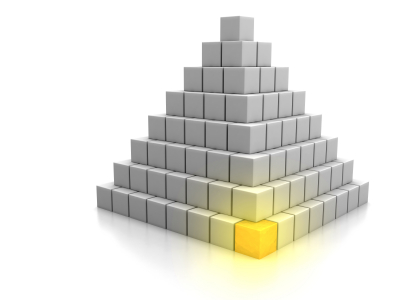Cornerstones

"Honesty ... is not some measure against some absolute truth; we measure it against our awareness of our truths..." (1)
"The principle of responsibility, like that of personal honesty, is of paramount importance in the world of personal and spiritual growth. This is not a rule of man, but one of nature and that rule is our actions have consequences." (2)
There are certainly a number of skills and awareness's one needs develop to help them become more in tune with the world, to see through the illusion created by our ego/mind or to simply find more balance in their lives. I've written about many of them and while not discounting or making any superior to any other there are certain foundation elements among them that stand out. The two quotes above speak to the ones I believe are absolutely essential if one is to make any real progress, and they are honesty and accepting responsibility.
I do not say this casually, nor did I come to this understanding quickly. My awareness and understand of this evolved as I worked on my own growth, sought to further develop my natural gifts and have tried to help others doing the same. What I have learned is that without either of these two qualities, in some measure, growth is greatly restricted. We repeatedly hear how our ego's create an illusion and this illusion takes us away from our true nature, our natural gifts and our connection to All. We also hear that breaking free of the illusion created by our ego or mind, which we do by associating it with us, is the key to finding balance and "happiness" in lives or even some form or degree of enlightenment. It is our own minds that are the greatest impediment to our growth and in order to work on our minds we need both of these qualities in spades. At the same time, they are two of the hardest to do.
To unlock our gifts and our inner beauty, to express ourselves more fully than through our temporary ego we clear our mind of baggage. In order to do this we clear our minds of conflicting, contradictory or false notions, don't jump to conclusions and use good reasoning. I have covered this at great length in a number of essays, so I will only touch on it here. In those essays our covered the notion that our minds do not come already able to do valid reasoning. Though it is easily capable of doing this and pretty much anything else we can conceive of, good reasoning must be taught to it or rather trained into it. Nor does the mind deal in truth, it deal in commonality and take direction and cues from our conscious choices. Honesty is important because when we lie our minds incorporate them even though we know they are not true. This leads to conflicts and erroneous thoughts. After all, how can you unbind the mind if it is busy fighting itself?
Now I think it would be safe to assume that we all know that honesty is an admirable quality and hopefully a desirable one as well, though too few realize how critically important it is. In fact, we cannot grow in any meaningful or significant way without it. So long as we are dishonest we are locked into our ego, that is to say our fear and reluctance to face the truth keeps us living in illusions and defending and protecting what is only "real" in our own minds. Without honesty our ability to see through the illusion is limited, I am sure this is obvious. However, the importance of honesty goes much deeper.
One of the areas where it is very important is in terms of what we are conscious of. This is something our mind does for us each and every moment. If it deems it appropriate it will filter out or completely block thoughts from surfacing consciously. It does not do this on it's own, it is merely doing what we have trained it to do. I spoke of this in the essay What We Are Conscious Of (Part 4 of the Our Mental House series (3)):
"In the moment, our minds are processing what we experience. Not just some of it, it processes every stimulus that we perceive (and we perceive what we are capable of reacting to). If each thought is a piece of luggage on the conveyor belt, those that reach the conscious level are the ones we have trained or taught our minds to pay attention to because they matter to us. By matter, I mean we have made them important. If we are preoccupied with other thoughts, then what is occurring now will be of less important and hence other thoughts will be filtered out, that is our minds will not place them on the portion of the conveyor belt that leads them outside the wall. If we feel strongly about something, and have not told our minds “we do not want to know about it”, our minds are more likely to present these thoughts to us.
It is not rocket science, we are creatures of habits, and we train our minds with every experience we have. When we casually think a thought such as “I do not need to know about this” and we do this often, we are telling our minds that we do not want these thoughts to appear outside the wall; and this is what it does. Contrary to popular notions, ignorance is not bliss."
At the top of the list is the reality that our honesty is a key element in how our mind is programmed. A great deal of the poor programming in our minds is directly a result of our challenges in this area. We do not realize that when we lie our mind integrates this and because of our dishonesty it is hard to say how it will do so, beyond that it will create conflicts. This is because the mind integrates our experiences and reactions to them in many different ways.

For example, if I lie to someone our minds will consider the circumstances involved, many aspects of which we are not even consciously aware. It will consider the person we lied to, their appearance, tone, how we felt at the time, the potential impact of our lying and their interpretation of our lie and the context and so on. Every one of these "considerations" is a thought. Our mind will then associate these thoughts among themselves and others we've had based on commonalities they share. These commonalities connect them and it will try to reconcile them as best it can. This process creates other issues such as conflicts with existing thoughts which we manifested when we integrated past experiences. This is a prime source of our tangled web of poor programming and therefore that of the issues we face in life as well as the depth of the illusion we have to deal with.
Our intuition, along with other clairvoyant skills we may be trying to develop, are also significantly affected by our level of honesty for if the mind is bound by conflicts so is our conscious awareness. In order for out intuition and inner knowledge to flow our mind needs to be unbound. Dishonesty is insidious, even the most benign intent for our dishonesty provides our mind with more conflicts. This is one of the biggest challenges to unlocking our awareness. It matters not if we lie to someone to maintain a relationship, choose to do under the guise of sparing someone's feeling or even try to tell ourselves some things do not matter when they do, the result is the same. We can tell ourselves that such things are of little consequence because we know we are lying; this too is part of the illusion.
Such matters became a significant impediment the older one is because of the years of dishonesty we have left in our wake. We have lived with various lies over the years and this creates ghosts in our closet. It also tends to manifest such "things" as guilt, blame, regret, remorse and so on. All of these result in greater separation between us and ourselves. Nor are such things typically overcome easily. We fear the consequences of honesty should we choose to try to embrace it. We may even try to be more selectively honest, which while not the answer is certainly a step in the right direction.
Being honest can also be a challenge if we have built up dependencies based on it for we could lose relationships, material possessions or even our jobs. For example, say we are put in a position where we must lie to keep a job, the lie may not be one about ourselves, it could be about the actions of another. If we don't lie and lose our jobs we could be unable to pay our bills and result in great hardship in our lives. The question then is, what is one to do in such a situation?
There is no definitive answer to this question, there are only choices and consequences. We may keep our job at the cost of karmic burdens and of course we are adding even more noise to our mind. In addition, we feel guilty or like we have cheated or some other reaction. There is also the possibility that the lie will be found out and we could have to deal with it anyway so all we are doing is delaying the inevitable. As a result the answer depends on what we are able to handle at that point in our lives. Some find the lie too expensive and accept the consequences, others are not strong enough or in a position where their family could be hurt by the results.
"Honesty is difficult to achieve. When we get angry, hurt or scared and we often say things we do not mean or lie to protect our feelings. Neither of these justify lying. See your reasons as something to understand, something you can change rather than rely on excuses. The impetus is on each of us to work to become more honesty, not as an end in itself, rather as part of the process of growing. We are better able to admit our frailties and our own problems when we have accepted them as truths about ourselves." (1)
Each of us must choose for ourselves whether to lie or not and we will base our choice on what matters to us and whether we feel we can handle the consequences of our honesty. There are a great many who prefer a lie to an uncomfortable truth. In the end we will do what we are capable of doing at the time, nothing more, nothing less. If we choose to lie to protect ourselves or our family, for example, we should also accept that at that point in time we made the choice we could and should not deride ourselves for it. Blaming ourselves or giving ourselves a hard time for our choice does not lessen the consequences, it adds to them. This is not to say we should forget about it and move on. We should recognize the weakness in ourselves that led to our feeling the need to lie and try to address it. If we don't we will likely have to continue to lie and in a very real way become trapped by our dishonesty.
The other cornerstone dovetails in with honesty and that is accepting responsibility. This is an area where one's beliefs about the nature of our existence can play a significant role. In particular I mean that either ones beliefs support the notion that we attract the experiences we need to learn or we don't. In the case where we do not, this allows us to be the victim of circumstances beyond our control. I won't tie this to any particular religious school or philosophy for people can hold the same or similar beliefs for very different reasons. My belief is that we do attract the experiences we have and have spoken about this before, namely:
"We are born who we are for a reason, it is not random or by chance. We are born who we are because of what our true self seeks to experience so that it can awaken to it's true nature. Each life we manifest new emotions and thoughts in our reactions to experiences and the forces we manifest must be balanced so that the true self is no longer "sleeping".
We do this by exploring the manifest universe and all the planes of energy associated with it from the causal on down to the mundane or physical plane. All that we do and attract is based on that "seed" that our higher self puts forth, that spark of life that is within us all." (4)
Also....
"We attract the experiences we have now due to our thoughts. Our experiences are not an accident; they are the direct result of the thoughts in our mind and the choices we have made because of them. The thoughts we have are those we manifested through our integration of experiences. If we do not like the outcomes, then we must change the thoughts that led to them. This means that in order to manifest what we do want or believe we want we must work with our own minds."(5)

Regardless of whether one believes that they attract the experiences they have or they are the result of either random chance or the doings of others we still must deal with the consequences of what we experience. This only becomes a significant issue when the experiences result in negative consequences for us for if the experience is a good one then we simply enjoy it. In the case of negative experiences, the primary difference in the two approaches is that in the latter case the tendency is to blame someone or something beyond ourselves for what happened. Blame serves no purpose save to add more noise to our already noisy mind, and it keeps us locked into the experience. This is because we assign blame based on past experiences and of course are adding to it.
Also, as I have mentioned before, when we assign blame to another or to some outside force we are making who or what we blame responsible for our situation. This makes it much harder for us to deal with our reactions because we cannot do much about something we do not accept responsibility for. In addition, by looking without we tend to overlook any part we may have played in the manifesting the experience as well as our own reactions to it.
One of the notions that make it challenging for people to accept that they manifest their own experiences occurs when the experience has significant consequences to us or is horrendous. Examples would be an assault of any kind, being stolen from or losing your home due to the act of another (such as the sub-prime loan issue that led to the '08 recession). It can be very hard to accept that we would choose or attract such experiences into our lives. Not accepting this often leads to the victim mentality, which locks us into the experience and our thoughts and feelings about it. This often holds true, if only at the non-conscious level, even for those who believe that they manifest their own experiences though to a lesser extent. Hence it is a challenge for everyone.
I call honest and responsibility cornerstone skills not just because they are key skills we need if we are trying to grow personally and spiritually. That could also apply to objective and non-superficial observation, proper reasoning, meditation and mindfulness and so on. I use the term because honesty and accepting personal responsibility for the events in our lives we do not require we have the other skills I mention, though the opposite is not the case.
It is very unlikely that we will suddenly become ruthlessly honest or immediately cease having thoughts that someone or something is to blame for what happens to us. Nor should this be our goal. Nor do I recommend that you should try to do this. It is neither necessary nor likely helpful to do so. If we try to take on too much we can actually end up setting ourselves back just as we can if we work on one area of ourselves at the exclusion of others. Balance is important, so is patience and perseverance and it does us little good if we create havoc in our lives or suffer additionally for the sake of rapid growth. Nor should we consider it a chore or that it is something we shall eventually stop doing as growth makes life better, us happier and more balanced. Besides, growth is a process, not a destination, and an incremental one at that, akin to peeling away the layers of an onion.
Listen to your life, try to grasp what your experiences are telling you about yourself. Accept that your experiences are for your learning, do so consciously and with all the will you have for this is how we retrain our minds. Our minds take direction from our self conscious thoughts. By seeking personal honesty and accepting our lives reflect us at one level or another we are sending a powerful message to our minds. Essentially we are giving it new marching orders. If we do this then we learn far more about ourselves when we contemplate or meditate on our experiences than if we do not. The mind will keep its secrets unless we are committed to learning them, willing to learn them and actively go about learning them. The keys to our land of plenty, to our happiness if you will, lie within us. All we need to do is quit reacting and start to act instead...it is much easier if we have solid cornerstones.

Cornerstone Concept Computer generated concept of cornerstone This image is copyright material of Victor Soares. All rights reserved.
© 2013 Allan Beveridge
References (*- denotes essays only available to site members of TheTwinPowers.com):
